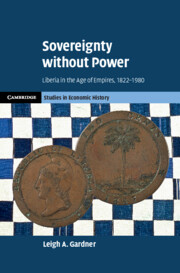Book contents
- Sovereignty without Power
- Cambridge Studies in Economic History
- Sovereignty without Power
- Copyright page
- Dedication
- Contents
- Figures
- Maps
- Tables
- Preface
- Acknowledgments
- 1 Reconstructing the Fragments
- Part I Foundations
- Part II The Art of Survival
- 4 Trade, Globalization, and Sovereignty
- 5 From Paper to Gold
- 6 The Costs of Foreign Capital
- 7 Financial Controls and Forced Labor
- Part III Sovereignty for Sale?
- Book part
- References
- Index
5 - From Paper to Gold
from Part II - The Art of Survival
Published online by Cambridge University Press: 27 October 2022
- Sovereignty without Power
- Cambridge Studies in Economic History
- Sovereignty without Power
- Copyright page
- Dedication
- Contents
- Figures
- Maps
- Tables
- Preface
- Acknowledgments
- 1 Reconstructing the Fragments
- Part I Foundations
- Part II The Art of Survival
- 4 Trade, Globalization, and Sovereignty
- 5 From Paper to Gold
- 6 The Costs of Foreign Capital
- 7 Financial Controls and Forced Labor
- Part III Sovereignty for Sale?
- Book part
- References
- Index
Summary
Shortly after the declaration of independence, the Liberian government established the Liberian dollar as its national currency. According to President Joseph J. Roberts, it was intended to both promote commerce and demonstrate the sovereignty of the Liberian state. The first coins were minted in England, with the financial backing of a British banker and abolitionist, as the Liberian state did not then have the means to fund their minting itself. These token coins were later supplemented with paper money printed in Monrovia. The Liberian dollar was an unbacked paper currency. It was initially valued at par with the US dollar but quickly depreciated as the Liberian government turned to the printing press during repeated fiscal crises in the decades after 1847. This chapter chronicles the Liberian government’s efforts to sustain the value of its currency, the adoption by the turn of the century of British sterling as the primary medium of exchange, followed by the replacement of British currency by the US dollar in 1943. The case of Liberia illustrates that formal monetary sovereignty may have little significance for governments lacking the resources and capacity to sustain the value of their currency, which may force them to adopt others to sustain their trade and public finances.
- Type
- Chapter
- Information
- Sovereignty without PowerLiberia in the Age of Empires, 1822–1980, pp. 116 - 138Publisher: Cambridge University PressPrint publication year: 2022

